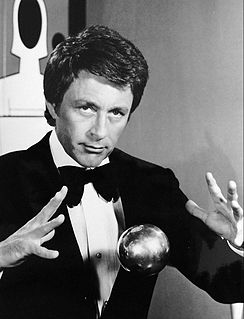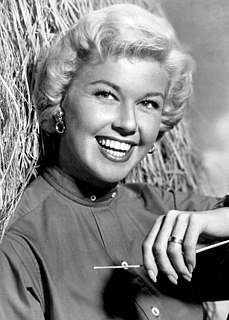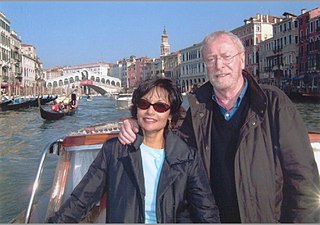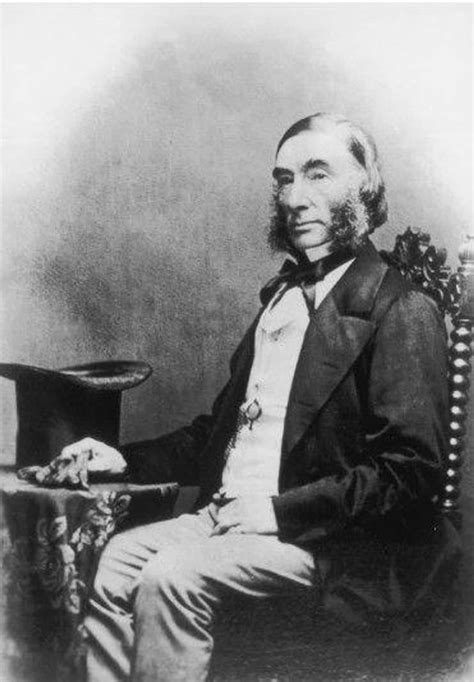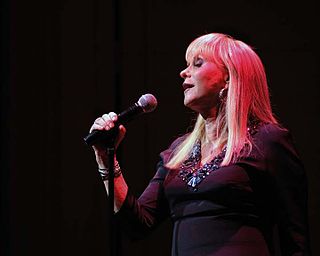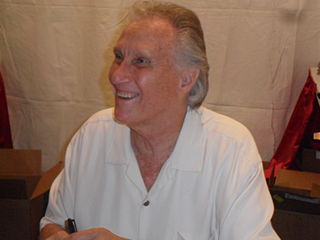A Quote by Bill Bixby
First I found [Elvis] to be a gentleman and then a gentle man. I found he could be sensitive to small issues. For someone of his stature there is very little for him to notice, ya know? He's so insulated by the people who surround him and by his own popularity. And yet Elvis will still find little things. He'll take the time to be gentle with people.
Related Quotes
Almost all of "Julie" was shot on location in Carmel, which is a lovely resort town a little south of San Francisco. My co-star was Louis Jourdan, whom I liked very much. An amiable man, very gentle, very much interested in the people around him; we had a good rapport and I found talking to him a joy . . . We would take long walks on the beautiful Carmel beach, chatting by the hour.
There was once a Bald Man who sat down after work on a hot summer's day. A Fly came up and kept buzzing about his bald pate, and stinging him from time to time. The Man aimed a blow at his little enemy, but — whack — his palm came on his head instead; again the Fly tormented him, but this time the Man was wiser and said: YOU WILL ONLY INJURE YOURSELF IF YOU TAKE NOTICE OF DISPICABLE ENEMIES.
We have to focus on his early work, and just one or two of his movies, and elements of his TV shows, to keep his memory pure. People now know that Elvis could play a mean rhythm guitar himself, and needed no other musicians to perform a great song. But Elvis was not just a rock star, he was an all-round entertainer.
[What for] was the first question he asked about any activity proposed to him - and nothing would make him act, if he found no valid answer. He flew through the days of his summer month like a rocket, but if one stopped him in mid-flight, he could always name the purpose of his every random moment. Two things were impossible to him: to stand still or to move aimlessly.
You are different from the really great man in only one thing: The great man, at one time, also was a very little man, but he developed one important ability: he learned to see where he was small in his thinking, and actions. Under the pressure of some task which was dear to him he learned better and better to sense the threat that comes from his smallness and pettiness. The great man, then, knows when and in what he is a little man.
A certain ultra-dignified gentleman of unusual prominence carried himself so stiffly that nobody felt free to call him by his first name. He quarreled with a friend of earlier days and from then on the two never spoke. The day the friend died an associate found the ultra-dignified gentleman staring through the window. When he came out of his reverie, he soliloquized with a sigh, ""He was the last to call me John."" Is any man really entitled to regard himself a success who has failed to inspire at least a goodly number of fellow mortals to greet him by his first name?
That same night, I wrote my first short story. It took me thirty minutes. It was a dark little tale about a man who found a magic cup and learned that if he wept into the cup, his tears turned into pearls. But even though he had always been poor, he was a happy man and rarely shed a tear. So he found ways to make himself sad so that his tears could make him rich. As the pearls piled up, so did his greed grow. The story ended with the man sitting on a mountain of pearls, knife in hand, weeping helplessly into the cup with his beloved wife's slain body in his arms.
You can take me and then you can take a blond white man with blue eyes, and you could say, "Fundamentally, they're different." And then I could talk to that white guy about the first time he lost someone close to his heart, and I could tell him about the first time I lost someone close to my heart, and I can guarantee you that at least 70 percent of the experienced feelings will be similar. We are human beings.
I thought you said that after this many years nothing should embarrass him?" Leigh said with gentle amusement. Lucian grunted. "I guess he's more sensitive than I thought." "I am NOT sensitive," Cale snapped, irritated by the very suggestion. "It's probably his mother's fault," Lucian said, ignoring him. "Martine named him after Caliope, the muse of poetry. Between that and his father dying when he was only fifty, he's probably suffered under Martine's namby-pamby influence.
